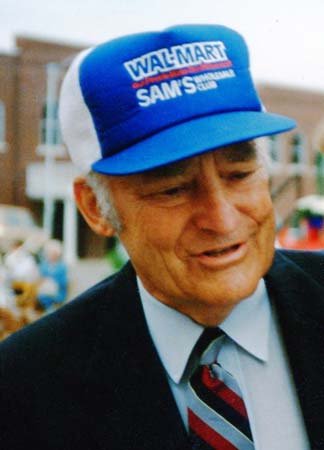Examples of Successful Transformational Leaders
Unleashing the Power of Transformational Leadership
In today’s rapidly evolving business landscape, where change is the only constant, the role of transformational leaders has become paramount. These exceptional individuals possess a unique ability to inspire and motivate their teams, driving organizational change and achieving remarkable results. Over the course of history, there have been numerous examples of such transformational leaders who have reshaped industries, challenged the status quo, and left an indelible mark on the world.
Transformational leadership goes beyond traditional management techniques. It involves envisioning a new future, challenging existing paradigms, and igniting a sense of purpose and passion within their teams. These leaders have an uncanny ability to inspire innovation, foster collaboration, and empower their employees to reach their full potential. They understand that success lies not just in achieving short-term goals, but in creating sustainable change that transforms the very fabric of organizations and industries.
One exemplary figure in the realm of transformational leadership is Elon Musk, the visionary behind Tesla and SpaceX. Musk’s audacious endeavors have not only revolutionized the automotive industry but have also pushed the boundaries of space exploration. By daring to dream big and pursuing seemingly impossible goals, Musk has transformed industries and challenged long-held beliefs. His unwavering commitment to innovation and his ability to rally his teams around a shared vision make him a prime example of a transformational leader.
Another exceptional leader who has made her mark is Indra Nooyi, the former CEO of PepsiCo. Nooyi’s tenure at PepsiCo was characterized by a relentless drive to transform the company’s product portfolio and adapt to changing consumer preferences. Under her leadership, PepsiCo expanded its offerings beyond traditional soft drinks and embraced healthier options, leading the way in addressing the growing concerns about nutrition and sustainability. Nooyi’s strategic vision and her unwavering commitment to corporate social responsibility exemplify the transformative power of leadership.
Satya Nadella, the CEO of Microsoft, is yet another remarkable leader who has successfully spearheaded a transformational journey. Taking the helm of one of the world’s most iconic technology companies, Nadella navigated Microsoft through a critical phase, shifting its focus towards a cloud-first, mobile-first strategy. He transformed the company’s culture, fostering a growth mindset and empowering employees to embrace change and innovation. Nadella’s leadership style showcases the power of empathy, adaptability, and a relentless pursuit of customer-centricity.
Mary Barra, the CEO of General Motors (GM), has also made significant strides in transforming a legacy automotive company. Barra assumed leadership during a tumultuous period following the 2009 financial crisis, and under her guidance, GM emerged as a leaner, more agile organization. She embraced innovation and spearheaded the company’s foray into electric vehicles, positioning GM as a frontrunner in sustainable mobility. Barra’s commitment to excellence, inclusivity, and continuous improvement exemplifies the essence of transformational leadership.
Lastly, no discussion on transformational leaders would be complete without mentioning Jeff Bezos, the mastermind behind Amazon. Bezos disrupted the retail industry and reshaped consumer behavior with his relentless pursuit of customer satisfaction and his focus on long-term growth. By prioritizing innovation and investing heavily in technology, Bezos transformed Amazon from an online bookstore into a global e-commerce giant. His unwavering commitment to customer-centricity, audacious vision, and long-term thinking serve as a testament to the power of transformational leadership.
In this article, we will delve deeper into the lives and accomplishments of these transformational leaders, exploring their unique approaches, key characteristics, and the lessons we can glean from their journeys. By studying their experiences, we can gain insights into the essence of transformational leadership and its pivotal role in driving successful organizational transformation. Together, we will embark on a journey through the lives of these remarkable individuals and uncover the secrets behind their transformative impact.
Elon Musk: Transforming the Automotive and Space Industries
Background and early ventures
Elon Musk, born in South Africa, is a visionary entrepreneur and a true embodiment of a transformational leader. His journey began with the founding of Zip2, a software company focused on providing business directories and maps to newspapers. Musk’s early ventures showcased his ambition and entrepreneurial spirit, setting the stage for his future endeavors.
Tesla’s disruption of the automotive industry
Musk’s most notable transformational achievement came with the founding of Tesla Motors in 2003. At a time when electric vehicles were perceived as niche and impractical, Musk set out to challenge the status quo. With a clear vision to accelerate the world’s transition to sustainable transportation, he spearheaded the development of electric vehicles that combined style, performance, and environmental consciousness.
Tesla’s groundbreaking innovations, such as the Model S, Model 3, and Model X, revolutionized the automotive industry. Musk’s leadership was instrumental in overcoming the skepticism surrounding electric vehicles and positioning Tesla as a leading force in the market. His relentless pursuit of technological advancements, investment in battery technology, and commitment to building a global charging infrastructure were key drivers of Tesla’s success.
Furthermore, Musk’s approach to open-sourcing Tesla’s patents demonstrated his willingness to collaborate with other manufacturers and foster industry-wide transformation. By sharing their electric vehicle technology, Musk aimed to accelerate the adoption of sustainable transportation and drive change beyond Tesla’s own product line.
SpaceX’s revolutionary advancements in space exploration
In addition to Tesla, Musk founded SpaceX in 2002 with the audacious goal of making space exploration more accessible and affordable. SpaceX disrupted the aerospace industry by challenging the conventional model of government-led space programs. Musk’s transformative leadership was instrumental in revolutionizing space travel and reducing the costs associated with it.
Under Musk’s guidance, SpaceX developed the Falcon 1, Falcon 9, and Falcon Heavy rockets, along with the Dragon spacecraft. These innovations not only propelled the company to become a major player in the commercial space industry but also brought about a paradigm shift in the possibilities of space exploration. SpaceX’s achievements include the first privately funded spacecraft to reach orbit and the first privately funded mission to the International Space Station.
Musk’s unwavering belief in the potential of reusable rockets led to the development of the Falcon 9 booster recovery program. This groundbreaking initiative aimed to recover and reuse rocket components, significantly reducing the cost of space missions. Through his transformational leadership, Musk redefined the boundaries of space exploration and inspired a new generation of innovators and space enthusiasts.
Key characteristics and practices of Elon Musk’s transformational leadership
Elon Musk’s success as a transformational leader can be attributed to several key characteristics and practices. Firstly, his unwavering vision and audacity to pursue seemingly impossible goals have inspired his teams to push the boundaries of innovation. Musk’s ability to communicate his vision and rally his employees around a shared purpose has been instrumental in driving organizational change.
Secondly, Musk leads by example and embraces a hands-on approach. He actively involves himself in the technical aspects of his companies, fostering a culture of continuous learning and improvement. His passion for details and his willingness to get his hands dirty inspire his teams to strive for excellence.
Additionally, Musk possesses an innate ability to navigate through adversity and setbacks. From production challenges to regulatory hurdles, he has displayed resilience and adaptability in the face of adversity. Musk’s relentless pursuit of solutions and his refusal to accept the status quo have been pivotal in transforming industries.
Finally, Musk’s transparent and charismatic leadership style has cultivated a sense of trust and loyalty among his employees. He values open communication, encourages dissenting opinions, and creates an environment that fosters creativity and innovation. Musk’s ability to attract top talent and build high-performing teams has been a critical factor in his companies’ success.
Elon Musk stands as an exemplar of transformational leadership, revolutionizing both the automotive and space industries. His vision, audacity, and relentless pursuit of transformative goals have not only driven Tesla and SpaceX to unprecedented heights but have also inspired a global movement towards sustainable transportation and space exploration. Musk’s journey serves as a testament to the power of transformational leadership in reshaping industries and challenging the limits of human potential.
Indra Nooyi: Leading PepsiCo’s Transformation
Overview of Indra Nooyi’s background and rise to leadership
Indra Nooyi’s journey from a young girl in Chennai, India, to the pinnacle of corporate leadership is a testament to her remarkable transformational leadership skills. With a strong educational foundation and a Master’s degree from Yale School of Management, Nooyi embarked on a career that would redefine PepsiCo and cement her legacy as one of the most influential leaders in the business world.
Transforming PepsiCo’s product portfolio
When Nooyi assumed the role of CEO at PepsiCo in 2006, she faced the challenge of transforming a company heavily reliant on carbonated beverages into a more diversified and health-conscious organization. Recognizing the shifting consumer preferences towards healthier options, Nooyi orchestrated a strategic shift in PepsiCo’s product portfolio.
Under her leadership, PepsiCo expanded its offerings to include a wide range of nutritious and convenient snacks, such as baked chips, granola bars, and yogurts. This diversification not only positioned PepsiCo to cater to evolving consumer demands but also helped the company to weather changing market dynamics. Nooyi’s ability to identify market trends and adapt PepsiCo’s offerings was instrumental in the company’s transformation.
Commitment to sustainability and corporate social responsibility
Nooyi’s transformational leadership extended beyond product diversification. She recognized the importance of sustainability and corporate social responsibility in shaping PepsiCo’s long-term success. Nooyi championed sustainable practices across the organization, setting ambitious goals to reduce water usage, decrease packaging waste, and lower greenhouse gas emissions.
Additionally, Nooyi prioritized corporate social responsibility initiatives, focusing on diversity and inclusion, community engagement, and philanthropy. She understood that a company’s success should be measured not only by financial performance but also by its positive impact on society. Nooyi’s commitment to sustainability and social responsibility elevated PepsiCo’s standing as a responsible global corporation.
Notable transformational leadership traits exhibited by Indra Nooyi
Indra Nooyi’s leadership style embodies several key transformational traits that have fueled PepsiCo’s transformation. Firstly, she is known for her strategic foresight and long-term vision. Nooyi anticipated changing consumer preferences and industry trends, positioning PepsiCo ahead of the curve.
Secondly, Nooyi embraced innovation and encouraged a culture of experimentation within PepsiCo. She empowered her teams to think creatively and take calculated risks, fostering a spirit of entrepreneurship and adaptability. This approach led to the development of innovative products and initiatives that resonated with consumers.
Furthermore, Nooyi’s strong communication skills were vital in rallying employees and stakeholders around PepsiCo’s transformational journey. She effectively conveyed the company’s vision and purpose, fostering alignment and engagement at all levels. Nooyi’s authentic and inclusive leadership style created a sense of trust and inspired individuals to perform at their best.
Lastly, Nooyi exhibited a deep commitment to developing talent and fostering a diverse workforce. She recognized the value of different perspectives and actively promoted gender and cultural diversity within PepsiCo. Nooyi’s emphasis on inclusivity and nurturing future leaders laid the foundation for sustainable growth and succession planning.
In summary, Indra Nooyi’s transformational leadership at PepsiCo propelled the company to new heights, embracing diversification, sustainability, and corporate social responsibility. Her strategic vision, commitment to innovation, effective communication, and focus on talent development were instrumental in driving PepsiCo’s transformation. Nooyi’s remarkable journey serves as an inspiration to aspiring leaders and showcases the power of transformational leadership in shaping organizations for the future.
Satya Nadella: Transforming Microsoft’s Culture and Strategy
Background and appointment as CEO of Microsoft
Satya Nadella’s ascent to the role of CEO at Microsoft in 2014 marked a turning point for the technology giant. With a diverse background encompassing engineering, product development, and leadership roles within Microsoft, Nadella brought a fresh perspective and a transformative vision to the company.
Shift towards a cloud-first, mobile-first strategy
One of Nadella’s most significant contributions as CEO was steering Microsoft towards a cloud-first, mobile-first strategy. Recognizing the evolving landscape of technology and the increasing prominence of cloud computing, Nadella positioned Microsoft as a leader in the cloud services market.
Under his leadership, Microsoft developed Azure, a robust cloud platform, and expanded its offerings to include a wide range of cloud-based services and solutions. This strategic shift allowed Microsoft to diversify its revenue streams beyond traditional software licensing models and embrace the era of cloud computing.
Nadella’s cloud-first approach not only transformed Microsoft’s business model but also empowered customers by providing flexible and scalable solutions that drive productivity and innovation.
Fostering a growth mindset and empowering employees
Nadella’s transformational leadership style is deeply rooted in fostering a growth mindset and empowering employees. He instilled a cultural shift within Microsoft, encouraging a sense of curiosity, continuous learning, and embracing failure as an opportunity for growth.
By emphasizing the importance of empathy and active listening, Nadella created an environment where every employee’s voice is heard and valued. This inclusive approach fostered collaboration, unleashed the creative potential of Microsoft’s workforce, and resulted in innovative products and services.
Nadella’s leadership style emphasizes the power of teamwork and collaboration, breaking down silos and encouraging cross-functional cooperation. He believes that diverse perspectives and collective intelligence drive breakthrough innovations.
Lessons learned from Satya Nadella’s transformational leadership style
Satya Nadella’s transformational leadership style offers valuable lessons for aspiring leaders. Firstly, he emphasizes the importance of having a clear vision and aligning the organization around it. Nadella effectively communicated Microsoft’s mission to empower every individual and organization to achieve more, inspiring a sense of purpose among employees and stakeholders.
Secondly, Nadella’s focus on cultural transformation highlights the significance of shaping a growth-oriented and inclusive organizational culture. By fostering a growth mindset, embracing diversity, and creating an environment that encourages experimentation, Nadella unlocked the potential of Microsoft’s talent pool and drove innovation.
Additionally, Nadella’s customer-centric approach emphasizes the importance of deeply understanding customer needs and designing products and services that truly resonate with them. By placing the customer at the center of decision-making, he enabled Microsoft to deliver solutions that meet evolving market demands and drive customer satisfaction.
Lastly, Nadella’s commitment to continuous learning and adaptability serves as a reminder that leadership is an ongoing journey. He encourages leaders to remain humble, embrace new technologies, and embrace change as a constant in today’s dynamic business landscape.
Satya Nadella’s transformational leadership has been instrumental in reshaping Microsoft’s culture and strategy. His strategic vision, emphasis on cloud computing, focus on fostering a growth mindset, and customer-centric approach have positioned Microsoft as a leader in the technology industry. Nadella’s leadership journey serves as a testament to the power of transformational leadership in driving organizational change and navigating the complexities of the digital age.
Mary Barra: Reshaping General Motors for the Future
Overview of Mary Barra’s journey to becoming CEO
Mary Barra’s remarkable journey from starting as an intern at General Motors (GM) to becoming its CEO exemplifies the transformative power of leadership. With a background in electrical engineering and a deep understanding of automotive manufacturing, Barra rose through the ranks of GM, taking on various leadership roles before assuming the top position in 2014.
Addressing the aftermath of the 2009 financial crisis
Barra’s tenure as CEO began during a critical period for GM, as the company was still recovering from the 2009 financial crisis that led to its bankruptcy. Under her leadership, GM underwent a significant transformation, focusing on financial stability, operational efficiency, and regaining consumer trust.
Barra implemented stringent cost-cutting measures and streamlined operations, ensuring that the company became more agile and resilient in the face of market challenges. Her strategic decisions, coupled with a relentless commitment to quality and safety, helped GM regain its position as a leading global automotive manufacturer.
Embracing innovation and electric vehicles
A key aspect of Barra’s transformative leadership has been her commitment to innovation and the development of electric vehicles (EVs). Recognizing the industry’s shift towards sustainable mobility, she spearheaded GM’s aggressive EV strategy, aiming to position the company as a leader in the electric vehicle market.
Barra’s vision led to the launch of the Chevrolet Bolt EV, a breakthrough electric vehicle that offered an affordable range and contributed to the mass adoption of electric transportation. Under her leadership, GM announced plans to invest billions of dollars in EV research and development, aiming to introduce a wide range of electric models to meet diverse consumer needs.
Moreover, Barra emphasized the importance of autonomous vehicles and advanced driver-assistance systems (ADAS) in shaping the future of transportation. GM’s investments in self-driving technology, such as the Cruise Automation subsidiary, positioned the company at the forefront of the autonomous vehicle revolution.
Leadership principles exemplified by Mary Barra during GM’s transformation
Mary Barra’s transformational leadership principles played a pivotal role in reshaping GM’s culture and driving organizational change. Firstly, she emphasized the importance of a customer-centric mindset. By actively listening to customers and understanding their evolving needs, Barra ensured that GM’s products and services aligned with market demands, driving customer satisfaction and loyalty.
Secondly, Barra fostered a culture of innovation and collaboration within GM. She encouraged cross-functional teams, breaking down silos and fostering an environment that nurtured creativity and breakthrough thinking. Barra recognized that innovation could come from any level of the organization, and she actively sought ideas and input from employees at all levels.
Furthermore, Barra emphasized the significance of diversity and inclusion in driving innovation and business success. She championed diversity initiatives and aimed to create an inclusive workplace where diverse perspectives were valued and leveraged to drive creativity and better decision-making.
Lastly, Barra’s commitment to corporate social responsibility and sustainability served as a guiding principle for GM. She led the company’s efforts in reducing environmental impact, promoting responsible manufacturing practices, and contributing to the communities where GM operates.
In summary, Mary Barra’s transformational leadership has reshaped General Motors, steering the company through significant challenges and positioning it for future success. Her focus on financial stability, commitment to innovation and electric vehicles, emphasis on customer-centricity, and dedication to diversity and sustainability have propelled GM’s transformation and established the company as a leader in the automotive industry. Barra’s journey is a testament to the power of transformational leadership in driving organizational change and navigating the complexities of the modern business landscape.
Jeff Bezos: Transforming Amazon into a Global E-commerce Giant
Early days of Amazon and Jeff Bezos’ vision
Jeff Bezos, the founder of Amazon, embarked on a transformational journey that revolutionized the e-commerce industry. Bezos’s relentless pursuit of his vision, coupled with his unwavering commitment to customer satisfaction, laid the foundation for Amazon’s meteoric rise.
From its humble beginnings as an online bookstore, Bezos foresaw the immense potential of the internet and envisioned Amazon as a platform that would offer a vast selection of products and unparalleled convenience to customers worldwide. His audacious vision propelled Amazon’s transformation into the global e-commerce giant it is today.
Expansion beyond bookselling and into various industries
Bezos’s transformative leadership was evident in Amazon’s expansion beyond bookselling. With a focus on long-term growth, he guided Amazon’s strategic diversification into various industries, including electronics, clothing, home goods, and even cloud computing.
Under Bezos’s direction, Amazon launched innovative services such as Amazon Prime, which offered expedited shipping, streaming media, and other benefits to subscribers. This membership program not only fostered customer loyalty but also set the stage for Amazon’s foray into digital content and streaming services, such as Amazon Prime Video.
Furthermore, Bezos’s transformative approach led Amazon to acquire companies like Zappos and Whole Foods, expanding its reach and diversifying its offerings. His ability to identify and capitalize on emerging market trends and customer needs enabled Amazon to disrupt traditional retail and establish itself as a leader in multiple industries.
Customer-centric approach and focus on long-term growth
One of the key factors behind Amazon’s transformational success lies in its unwavering focus on customer-centricity. Bezos instilled a deep customer obsession within the company’s culture, emphasizing the importance of delivering exceptional value and a seamless customer experience.
Bezos prioritized long-term growth over short-term profits, enabling Amazon to continually invest in innovation, infrastructure, and customer service. This approach allowed Amazon to consistently exceed customer expectations, expand its product offerings, and drive customer loyalty.
Additionally, Bezos’s commitment to continuous improvement and experimentation led to the development of groundbreaking initiatives such as Amazon Prime Air, a drone delivery service, and the voice-activated smart speaker, Amazon Echo, powered by the virtual assistant Alexa. These innovations exemplify Bezos’s transformative leadership, pushing the boundaries of technology and redefining customer experiences.
Key transformational leadership qualities displayed by Jeff Bezos
Jeff Bezos’s transformational leadership style encompasses several key qualities that have been instrumental in Amazon’s success. Firstly, his unwavering vision and ability to think long-term have allowed Amazon to disrupt industries and shape the future of commerce. Bezos’s focus on innovation and his willingness to embrace calculated risks have positioned Amazon at the forefront of technological advancements.
Secondly, Bezos is known for his relentless pursuit of operational excellence. He instilled a culture of efficiency and continuous improvement within Amazon, driving cost optimization and operational innovation. Bezos’s emphasis on data-driven decision-making and a commitment to lean processes have been vital in supporting Amazon’s rapid growth.
Furthermore, Bezos’s leadership is characterized by his ability to attract top talent and foster a culture of ownership and innovation. He values intellectual curiosity, encourages diverse perspectives, and empowers employees to take ownership of their projects. Bezos’s leadership principles, as outlined in Amazon’s leadership principles framework, serve as a guiding force for Amazonians worldwide.
Lastly, Bezos’s resilience and adaptability in the face of challenges have been critical in Amazon’s transformational journey. He navigated through periods of intense competition, regulatory scrutiny, and market volatility, consistently guiding Amazon through turbulent times and emerging stronger than ever.
Jeff Bezos’s transformational leadership has been instrumental in Amazon’s evolution from an online bookstore to a global e-commerce powerhouse. His unwavering vision, customer-centric approach, and focus on long-term growth have fueled Amazon’s expansion into multiple industries and cemented its position as an industry disruptor. Bezos’s transformative leadership qualities, including his ability to think big, prioritize customer satisfaction, drive operational excellence, empower employees, and adapt to changing market dynamics, have shaped Amazon’s success story.
By challenging the status quo and consistently pushing the boundaries of innovation, Jeff Bezos has transformed the way we shop, consume media, and even think about technology. His journey serves as an inspiration to leaders worldwide, showcasing the transformative power of visionary leadership, customer obsession, and a commitment to long-term growth. As Amazon continues to evolve and shape the future of commerce, Bezos’s legacy as a transformational leader remains an enduring testament to his remarkable impact on the business landscape.
Charting the Course for Change: Lessons from Visionary Leaders
Throughout this article, we have explored the transformative leadership journeys of exceptional individuals who have left an indelible mark on their respective industries. Elon Musk’s audacious vision has revolutionized the automotive and space industries through Tesla and SpaceX. Indra Nooyi’s strategic acumen has transformed PepsiCo’s product portfolio and commitment to sustainability. Satya Nadella’s cloud-first approach has reshaped Microsoft’s strategy and culture. Mary Barra’s leadership has steered General Motors towards innovation and electric vehicles. Jeff Bezos’s customer-centric focus has propelled Amazon to become a global e-commerce giant. These transformational leaders share a common thread of challenging norms, fostering innovation, and driving change.
The examples of these transformational leaders offer valuable insights and lessons for aspiring leaders and organizations navigating the ever-changing business landscape. Some key takeaways include:
-
Vision and Purpose: Transformational leaders have a clear vision and purpose that inspires and guides their organizations. They envision new possibilities, challenge existing paradigms, and rally their teams around a shared mission.
-
Innovation and Adaptability: Embracing innovation and fostering a culture of adaptability are essential for driving transformation. Leaders must be open to change, encourage experimentation, and be willing to take calculated risks to stay ahead of the curve.
-
Customer-Centricity: Placing customers at the center of decision-making is crucial for success. Transformational leaders deeply understand customer needs, deliver exceptional value, and continuously evolve to meet changing demands.
-
Empowerment and Collaboration: Nurturing a culture of empowerment and collaboration is vital for driving organizational transformation. Leaders must inspire and empower their teams, foster a sense of ownership, and encourage diverse perspectives to drive innovation and excellence.
-
Resilience and Learning: Transformational journeys are not without challenges. Leaders must exhibit resilience, learn from failures, and adapt their strategies as they navigate obstacles and uncertainties.
Importance of transformational leadership in driving success and change
Transformational leaders play a critical role in driving success and change in organizations. Their ability to envision new possibilities, inspire others, and challenge the status quo is vital in a rapidly evolving business landscape. They have the power to shape cultures, drive innovation, and propel organizations towards new frontiers.
Furthermore, in times of disruption and uncertainty, transformational leaders become even more essential. They navigate through complexity, guide their organizations through change, and inspire resilience and adaptability among their teams. They are the catalysts for transformation, empowering their organizations to thrive in the face of challenges.
As businesses and industries continue to evolve, the need for transformational leadership becomes increasingly important. Organizations must identify and nurture these leaders, providing them with the support and resources necessary to drive meaningful change and achieve sustainable success.
In conclusion, the examples of successful transformational leaders such as Elon Musk, Indra Nooyi, Satya Nadella, Mary Barra, and Jeff Bezos demonstrate the profound impact that visionary and innovative leadership can have on organizations and industries. Their journeys serve as inspiration and provide valuable lessons for aspiring leaders who seek to drive transformation and create a lasting impact. In an era of constant change, transformational leadership is a powerful force that can shape the future and drive organizations towards new heights of success.






